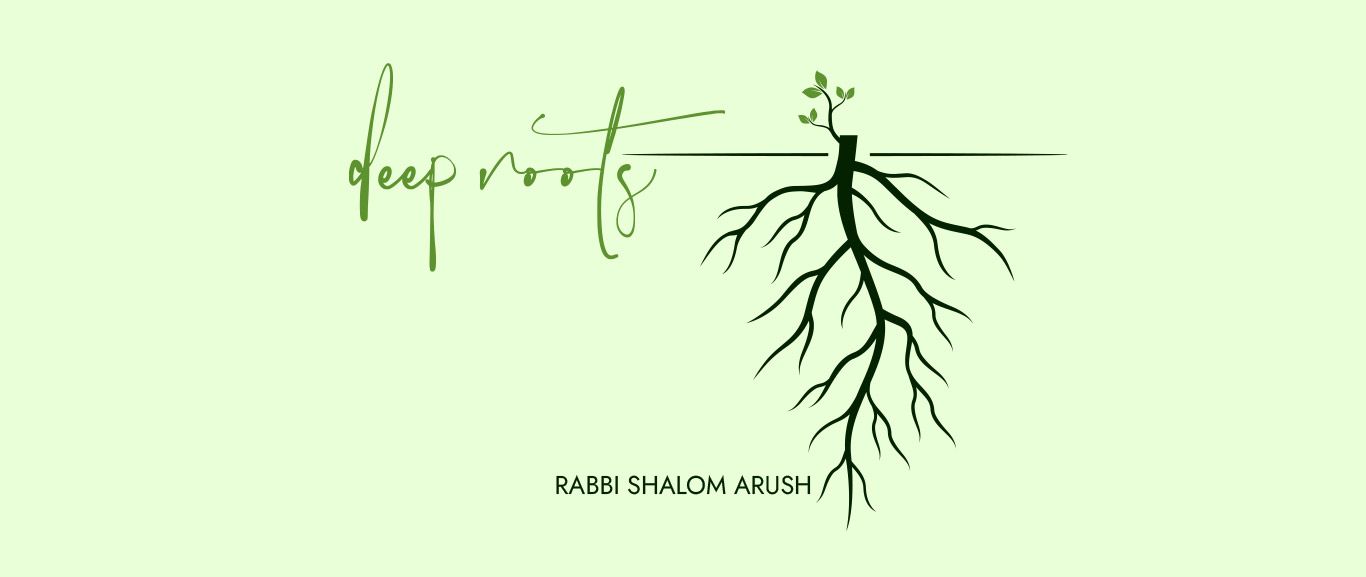
Deep Roots
Here are some simple yet powerful ways to build the emotional strength of our children and keep them healthy and stable in a sick and unstable world.

What Do We Do?
Yair returned home from Yeshiva for Shabbat like usual. But what was unusual, is that he absolutely refused to go back to Yeshiva come Motzei Shabbat. His teacher had become angry with him, and Yair felt angry and insulted.
Yair’s parents tried to speak with him. His teacher called to apologize. The staff of the Yeshiva tried to intervene. Psychologists were called, and the parents sought advice from top specialists in education. Nothing helped.
Yair’s father remembered his own years in yeshiva. He had a difficult relationship with his teacher to put it lightly, and many times he was even hit. But it never even occurred to him to tell his parents that he wasn’t prepared to return to his learning. What was so different between himself, and his son? Could it be that this younger generation is really so different, almost without recognition, from previous generations?
Roots in the Home
The Torah says that “man is like a tree of the field.” You can try to trim the tree perfectly, and water it, etc. But what really gives the tree the ability to stand against strong winds is the roots. You can’t see the roots because they are deep in the ground, but they draw out the vitamins and sustenance that the tree needs. The roots determine everything.
The difference between our generation and previous generations is the roots – and lack thereof. It used to be that the mother of the family was 100% mother. Her children were the center of her life. When the children came home, she had no other work, no cell phones, no distractions. It didn’t matter so much whether she knew so much about “child education,” because her heart felt the deep needs of her children, and she filled those needs in great abundance. The mother built deep and strong roots in her children, and those roots gave her children the strength to stand in all the difficult trials of life. Although the father was often too busy with his work to put a lot of time and energy into raising his children, the mother alone, who was 100% mother – was enough.
However, our generation is plagued by the need for both parents to work. Even very good parents generally cannot escape this reality. And even when the parents are home, they generally don’t have the availability and emotional strength to focus on the needs of their children. Neither parent is to blame! In our generation, both parents need to fulfill the roles of mother and father for their children.
Since the roots of the youngsters of this generation are so weak, we clearly see the results in the form of all sorts of emotional and educational problems. It isn’t necessarily because of a specific trauma. It is caused by the consistent lack of necessary “vitamins” that children need their parents to give them for their emotional health. This results in the development of weak roots that cannot withstand the “strong winds” and difficulties of life.
Growing Deep Roots
The solution is not for the parents to stop working or stop running their lives. The first step is to recognize the problem and be more sensitive to it. However, our primary job as parents is to build in our children the emotional strength and sturdiness that they need to weather the storms of life. We also cannot leave our children “handicapped” because they are always being dealt with by their parents and educators with silk gloves.
The solution is to give the children the vitamins they need – which is warmth and love. Our children must always know and feel that we love them and that we are on their side, even when they are not at home. They must feel that we believe in them and recognize their worth and potential and personal strengths. We must give our children belief in themselves!
This solution to “give the children their vitamins” must be in front of our eyes as parents constantly. Here are some simple tips and suggestions to fulfill this concept in practice, and save your children from the plague of the generation:
-
I beg you – from the moment that you come home and rest a bit, drop all your activities and focus on your children! Even if you only have ten minutes – make them good minutes. In those minutes, you are 100% mommy and 100% daddy. You aren’t doing anything else – not talking on the phone, nor cooking, nor doing other housework. Talk to your children at their eye level and be truly interested in what they are going through. Understand his life and his world. Don’t criticize or pressure them, and don’t preach – just listen, and try to understand and identify with your child. You can also take a little walk with your child, or play with him, or teach him all sorts of little life skills.
-
Speak to your children before they go to sleep. The moments before sleep need to be special and set aside to build deep roots in your children. Never let them go to sleep upset. Tell them that you love them, that Hashem loves them, that they are good and righteous children, hug and kiss them. Work very hard to find good things that they really did and tell them: “I see just how much you want to do good and be good!”
- In the morning, do whatever it takes to ensure that each child gets one or two minutes filled with love and a hug, and that they are sent off to school happy and with their parent’s radiating faces behind them. It will influence their entire day! You can also leave them little notes in their backpack or lunchbox – and throughout their day they will be that much stronger and that much more successful.
- Recognize and empower each child’s unique talents. Grades are not everything in life. Encourage your child’s strengths – perhaps he is very neat and orderly, or speaks gently, or is particularly sensitive to the needs of others. Find these good points, reveal them, and help the child recognize them in himself.
This is our opportunity as parents to do a real accounting of how we are acting, and search for simple yet powerful ways to build the emotional strength of our children and keep them healthy and stable in a sick and unstable world.














Tell us what you think!
Thank you for your comment!
It will be published after approval by the Editor.